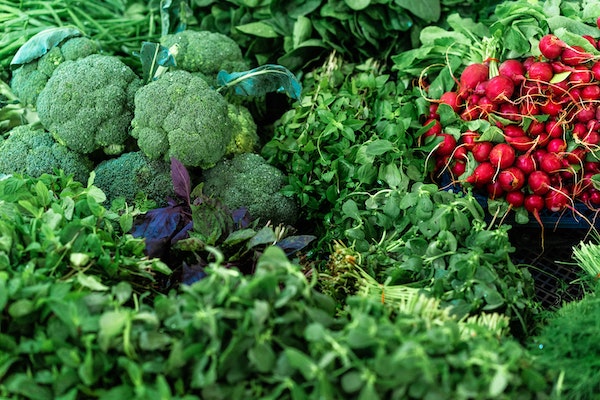Boosting memory, focus, and overall mental health is a common goal for many of us as we seek to enhance our cognitive abilities and well-being. Dr. Uma Naidoo, a Harvard trained psychiatrist, professional chef, and trained Nutrition Specialist, has something to say on the subject of how the foods we eat can make a significant difference in boosting mental clarity and emotional well-being. As the founder and Director of the first hospital-based Nutritional Psychiatry program in the United States and Director of Nutritional and Lifestyle Psychiatry at Massachusetts General Hospital, not to mention the bestselling author of This if Your Brain on Food, she is worth listening to.
Through her expertise, she advocates for a balanced and brain-boosting diet that can make a significant difference in mental clarity, cognition and focus. Here are some of her important recommendations:
Leafy Greens: Dr. Naidoo emphasizes the importance of leafy greens like spinach, kale, and collard greens. These vegetables are rich in essential nutrients, such as folate, vitamin K, and antioxidants, which play a crucial role in supporting brain health and cognitive function.
Fatty Fish: Fatty fish like salmon, mackerel, and sardines are abundant in omega-3 fatty acids. These healthy fats are essential for brain health, as they contribute to the structure and function of brain cells and help reduce inflammation, which can negatively impact cognitive abilities.
Whole Grains: Whole grains like oats, quinoa, and brown rice provide a steady release of glucose to the brain, promoting consistent energy levels throughout the day. This sustained energy can help improve focus and concentration, preventing the sharp highs and lows associated with refined carbohydrates.
Berries: Blueberries, strawberries, and other colorful berries are rich in antioxidants that protect the brain from oxidative stress and inflammation. These compounds have been linked to improved memory and a reduced risk of neurodegenerative diseases.
Nuts and Seeds: Nuts and seeds, such as walnuts, almonds, and flaxseeds, are excellent sources of healthy fats, vitamin E, and other nutrients beneficial to brain health. They can support memory and cognitive function and may even help lower the risk of developing age-related cognitive decline.
Fermented Foods: Probiotic-rich foods like yogurt, kefir, and kimchi foster a healthy gut microbiome. Gut health is increasingly recognized as crucial for mental well-being, as the gut-brain axis plays a significant role in mood regulation and cognitive function.
Dark Chocolate: Dark chocolate with high cocoa content is a delightful treat that also contains flavonoids, which have been linked to improved memory and cognitive abilities. However, moderation is key, as chocolate is calorie-dense.
Turmeric: Dr. Naidoo highlights the potential benefits of turmeric, a spice known for its anti-inflammatory and antioxidant properties. Curcumin, the active compound in turmeric, may help protect the brain from age-related cognitive decline.
Green Tea: Green tea contains L-theanine, an amino acid that can enhance focus and attention while providing a gentle boost in energy without the jitters often associated with caffeine.
Water: Although not a food per se, staying hydrated is crucial for optimal brain function. Dehydration can impair cognitive abilities and lead to mental fatigue.
Dr. Naidoo’s recommendations illustrate the powerful connection between nutrition and mental health. By including these brain-boosting foods into our diets, we can take significant steps toward improving memory, focus, and overall well-being. As always, it’s essential to maintain a balanced diet and consult a physician concerning any dietary restrictions or health conditions while making dietary changes.
The good news is knowing that the foods we eat can have a huge impact on mental and emotional health!
